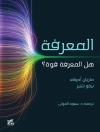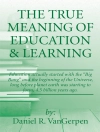This book equips SENCOs and aspiring SENCOs to engage in high level continuing professional development activity associated with studying for mandatory qualifications, and supports critical and innovative practice and career progression.
Written by a multi-disciplinary team, it embraces sociological, medical and post-modern perspectives. It will be of interest to researchers and practitioners as it also critiques current theory, legislation, policy and research and how these can be transferred into settings. The book considers issues that SENCo’s will experience both in their role and as part of this professional development, identifying the complexity of issues they have to consider and priorities in their role.
A range of pedagogic and interactive features are used to support the development of study skills when working at postgraduate level such as:
- research and literature searching;
- knowledge building and skills development in SENCo;
- the ability to galvanise change in their context including difficult and respectful conversations about SEN provision and
- the development of leadership skills.
This book is unique in its link between the academic and professional dimensions of the mandatory qualification – a bridge between engaging in CPD and practice of the SENCo role.
Tabla de materias
Part One: Examining the SENCo role
Chapter 1 – Examining the SENCo role
Chapter 2 – SENCo professional identity and development
Chapter 3 – SENCos and inclusive pedagogy
Chapter 4 – The SENCo as leader: speaking up and speaking out
Chapter 5 – SENCos engaging with theory
Part Two: The SENCo at work
Chapter 6 – The SENCo role across age phases
Chapter 7 – Working with children and young people experiencing additional challenges
Chapter 8 – Working with parents
Chapter 9 – Working with other professionals
Chapter 10 – Working with critical reflection on professional practice
Chapter 11 – SENCos using data
Chapter 12 – Evidence based practice to promote advocacy for learners with SEND
Sobre el autor
Stephanie Brewster started out as a speech and language therapist working in various health and educational settings with children and adults with significant communication needs. A key part of this was supporting pre-registration students on placement and contributing to CPD. She is currently a senior lecturer at the University of Wolverhampton, in the special educational needs, disability and inclusion studies department, working predominantly with postgraduate learners.












